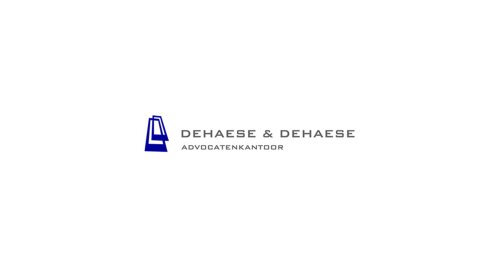Best Contract Lawyers in Hasselt
Share your needs with us, get contacted by law firms.
Free. Takes 2 min.
List of the best lawyers in Hasselt, Belgium
About Contract Law in Hasselt, Belgium
Contract law in Hasselt follows Belgian federal law, primarily the Civil Code and the Code of Economic Law. As of 2023, Book 5 of the Civil Code known as the Law of Obligations modernizes rules on how contracts are formed, interpreted, performed, and terminated. Local practice in Hasselt is influenced by Flemish regional rules for specific contract types such as residential leases and by language requirements for certain documents. Courts in and around Hasselt handle both civil and commercial contract disputes, and parties often make use of mediation and other dispute resolution options before going to court.
Why You May Need a Lawyer
People and businesses in Hasselt commonly seek legal help to draft, review, and negotiate contracts such as sales agreements, service agreements, IT and software licenses, construction contracts, non-disclosure agreements, consultancy agreements, and terms and conditions. A lawyer can check whether the contract includes mandatory clauses, complies with consumer or B2B rules, and reflects your negotiated risks. If a dispute arises, a lawyer can advise on remedies such as termination, specific performance, price reduction, and damages, and can help with debt recovery and settlement strategy.
Legal assistance is particularly valuable when contracts cross borders, involve e-signatures, or handle personal data, when you need to apply Flemish language requirements to employment or social documents, when you want to rely on consumer rights such as withdrawal or warranty, or when unforeseen events trigger force majeure or hardship renegotiation. For high-stakes deals or where timing is critical, legal advice can reduce the risk of unenforceable clauses, penalties, or costly litigation.
Local Laws Overview
Formation and consent. A valid Belgian contract requires consent, capacity, and a lawful object. Silence is not normally acceptance. Standard terms that materially conflict may not bind the other party unless expressly accepted. Good faith applies during negotiation and performance, and misleading or withholding essential information can trigger pre-contractual liability.
Writing and form. Many contracts can be oral, but writing is required for certain agreements such as consumer credit, suretyship by a consumer, residential leases, and most employment and social documents. In practice, written contracts with clear evidence are strongly recommended. Electronic contracts are valid, and qualified electronic signatures carry strong evidential value under EU rules.
Language in Flanders. In Hasselt, employment and many company social documents must be drafted in Dutch under Flemish language rules. Non-compliance can lead to sanctions or unenforceability. For consumer contracts and mandatory consumer information, clear and understandable language is required, and Dutch is typically expected for transactions aimed at the Flemish market.
Consumer protection. Consumers benefit from strong protections under the Code of Economic Law. Distance and off-premises contracts usually include a 14-day withdrawal right. Unfair terms that create a significant imbalance can be void. There is a legal warranty for lack of conformity in consumer sales, normally two years for goods, with particular rules for digital content and second-hand goods.
B2B fairness rules. Belgian law restricts unfair terms between businesses and prohibits abuse of economic dependence. Late payment in commercial transactions is governed by specific rules on statutory interest and compensation. Clear payment terms and compliant penalty clauses are essential in business contracts.
Performance, hardship, and force majeure. Book 5 recognizes force majeure and includes a hardship mechanism. If unforeseeable circumstances make performance excessively onerous, a party may request renegotiation and, failing agreement, seek court adaptation or termination, unless the contract validly excludes this. Courts can also reduce clearly excessive penalty clauses.
Remedies for breach. Available remedies include specific performance, termination for cause, replacement or repair, price reduction, and damages. Notice of default is often required before enforcing certain remedies. Evidence of breach and causation is key, so maintaining records, emails, delivery notes, and logs is crucial.
Evidence and limitation periods. While many contracts can be proven by any means, higher value claims often require written proof or equivalent evidence. The general limitation period for contractual claims is commonly ten years, but shorter periods apply to certain claims such as consumer warranty issues or professional fees. Limitation can be interrupted by formal notice or legal action. Seek advice early to protect deadlines.
Dispute resolution in Hasselt. Parties can use negotiation, mediation, or conciliation before filing a claim. The local Justice of the Peace often hears small-claims disputes and residential lease matters. Civil chambers of the Court of First Instance handle broader civil disputes. The Enterprise Court handles business disputes such as between companies or concerning company law and commercial practices. Urgent matters can be brought in summary proceedings for interim relief.
Frequently Asked Questions
Are oral contracts valid in Belgium?
Yes, many contracts are valid even if they are oral. However, certain contracts must be in writing, and written evidence is generally critical to prove what was agreed. For significant transactions, always use a written contract or a written confirmation of key terms.
Do I need to draft contracts in Dutch in Hasselt?
For employment and many social documents in the Flemish Region, Dutch is mandatory. For consumer-facing documents, information must be clear and understandable, and Dutch is typically expected in Hasselt. For B2B contracts, parties often choose a language, but practical and enforcement considerations favor Dutch when the contract will be performed or litigated locally.
Are e-signatures legally valid?
Yes. Electronic signatures are recognized in Belgium. A qualified electronic signature has a legal effect similar to a handwritten signature. Use a reliable signing process and keep an audit trail to strengthen evidential value.
What is the cooling-off period for online or doorstep purchases?
Consumers usually have a 14-day right to withdraw from distance and off-premises contracts, with some exceptions for customized goods, urgent repairs, or digital content once performance starts with consent. Traders must provide clear pre-contractual information about this right.
Can a court strike out unfair terms?
Yes. Unfair terms in consumer contracts are prohibited and can be void. Belgian law also restricts unfair terms between businesses. Courts can strike out offending clauses and may keep the rest of the contract in force if it can stand without the clause.
How do I recover unpaid invoices from a client?
Start with a formal notice of default that references the invoice, due date, interest, and any contractual compensation. If unpaid, you can pursue amicable collection, mediation, or court action. For B2B, statutory late payment interest and a lump-sum recovery fee may apply. Preserve delivery proofs and correspondence.
Can I renegotiate or end a contract due to unforeseen cost increases?
Possibly. Under the hardship mechanism in Book 5, a party may request renegotiation if unforeseeable circumstances make performance excessively onerous. If negotiations fail, the court may adapt or terminate the contract. Many contracts include price-indexation or hardship clauses that will guide the outcome.
What remedies are available if the other party breaches?
Depending on the breach and the contract, you can seek specific performance, termination, repair or replacement, price reduction, damages, and legal interest. A prior notice to perform is often required, unless performance has become impossible or time was of the essence.
Which court will hear my contract dispute in Hasselt?
Jurisdiction depends on the subject and amount. Small claims and residential lease cases are commonly heard by the local Justice of the Peace. Civil contract disputes go to the Court of First Instance. Business disputes typically go to the Enterprise Court. Parties can sometimes agree on jurisdiction, but consumer and employment rules limit this.
How much does a lawyer cost, and is legal aid available?
Lawyers in Hasselt may charge hourly rates, fixed fees, or mixed arrangements. Ask for a fee agreement that explains billing, expenses, and VAT. If you have limited means, you may qualify for first-line free legal advice and second-line partially or fully funded legal aid through the local bar association structures.
Additional Resources
Federal Public Service Justice for general information on civil procedure and court organization.
Federal Public Service Economy and its Consumer Protection services for market practices, consumer rights, and unfair terms.
Consumer Ombudsman Service for consumer-business dispute mediation.
Belmed online mediation platform for consumer and commercial disputes.
Federal Mediation Commission for lists of accredited mediators.
Balie Limburg the local bar association for lawyer referrals and legal aid information.
Justitiehuis Hasselt and local legal aid offices for first-line legal advice.
Notaries in Hasselt for authentic deeds and specific contracts such as real estate and matrimonial agreements.
Next Steps
Clarify your objectives and risks. Write down what you want the contract to achieve, deadlines, price or payment terms, performance standards, liability caps, and exit options. Identify mandatory rules that apply such as language, consumer information, or lease registration.
Collect your documents. Gather drafts, emails, proposals, purchase orders, delivery notes, invoices, and any prior agreements. Keep a timeline of events and communications. Preserve digital logs and messages.
Seek early legal advice. Contact a contract lawyer in Hasselt who knows Belgian and Flemish rules. Ask for an initial assessment of enforceability, risks, and strategy, including negotiation, mediation, or litigation options.
Choose the right process. For ongoing relationships, consider a without-prejudice negotiation or mediation. For urgent needs such as stopping a breach or preserving assets, discuss interim measures in summary proceedings.
Agree on clear terms. Ensure the contract includes precise scope, acceptance criteria, change control, pricing, payment, delivery or milestones, IP and data protection, confidentiality, warranties, liability limits, force majeure and hardship, governing law and forum, and language. Use Dutch where required or advisable in Hasselt.
Monitor performance and compliance. Implement contract management, reminders for deadlines, and procedures for notices of default. Act quickly if a breach occurs to protect your rights and limitation periods.
If you need assistance now, contact a local lawyer, ask about fees and timelines, and request a written engagement letter that sets out scope and costs. Early, targeted advice usually saves time and money later.
Lawzana helps you find the best lawyers and law firms in Hasselt through a curated and pre-screened list of qualified legal professionals. Our platform offers rankings and detailed profiles of attorneys and law firms, allowing you to compare based on practice areas, including Contract, experience, and client feedback.
Each profile includes a description of the firm's areas of practice, client reviews, team members and partners, year of establishment, spoken languages, office locations, contact information, social media presence, and any published articles or resources. Most firms on our platform speak English and are experienced in both local and international legal matters.
Get a quote from top-rated law firms in Hasselt, Belgium — quickly, securely, and without unnecessary hassle.
Disclaimer:
The information provided on this page is for general informational purposes only and does not constitute legal advice. While we strive to ensure the accuracy and relevance of the content, legal information may change over time, and interpretations of the law can vary. You should always consult with a qualified legal professional for advice specific to your situation.
We disclaim all liability for actions taken or not taken based on the content of this page. If you believe any information is incorrect or outdated, please contact us, and we will review and update it where appropriate.









